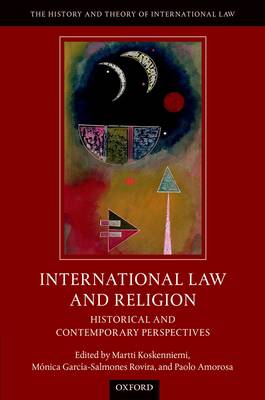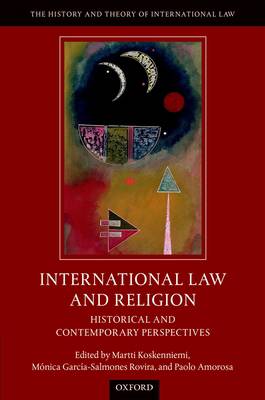
- Afhalen na 1 uur in een winkel met voorraad
- Gratis thuislevering in België vanaf € 30
- Ruim aanbod met 7 miljoen producten
- Afhalen na 1 uur in een winkel met voorraad
- Gratis thuislevering in België vanaf € 30
- Ruim aanbod met 7 miljoen producten
Zoeken
International Law and Religion
Historical and Contemporary Perspectives
€ 233,95
+ 467 punten
Omschrijving
This books maps out the territory of international law and religion challenging received traditions in fundamental aspects. On the one hand, the connection of international law and religion has been little explored. On the other, most of current research on international legal thought presents international law as the very victory of secularization. By questioning that narrative of secularization this book approaches these traditions from a new perspective. From the Middle Ages' early conceptualizations of rights and law to contemporary political theory, the chapters bring to life debates concerning the interaction of the meaning of the legal and the sacred. The contributors approach their chapters from an array of different backgrounds and perspectives but with the common objective of investigating the mutually shaping relationship of religion and law. The collaborative endeavour that this volume offers makes available substantial knowledge on the question of international law and religion.
Specificaties
Betrokkenen
- Uitgeverij:
Inhoud
- Aantal bladzijden:
- 480
- Taal:
- Engels
- Reeks:
Eigenschappen
- Productcode (EAN):
- 9780198805878
- Verschijningsdatum:
- 10/10/2017
- Uitvoering:
- Hardcover
- Formaat:
- Genaaid
- Afmetingen:
- 155 mm x 231 mm
- Gewicht:
- 780 g

Alleen bij Standaard Boekhandel
+ 467 punten op je klantenkaart van Standaard Boekhandel
Beoordelingen
We publiceren alleen reviews die voldoen aan de voorwaarden voor reviews. Bekijk onze voorwaarden voor reviews.










